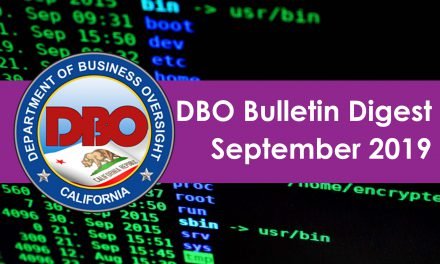How long does it really take to become a real estate agent in California?
So you want to be a real estate agent…
Becoming a real estate agent opens up a whole new world of business opportunities, but getting there can take some time. Once you complete the required educational courses to qualify for the state exam — a minimum 54-day commitment — you subject yourself to the mercy of the California Bureau of Real Estate (CalBRE).
As most agents and brokers know, CalBRE processing times aren’t exactly expedient. However, you can speed up the licensing process by choosing the most efficient application options the CalBRE provides.
When planning to become an agent, you want to know approximately how long it will take before you can get to work as a licensee and start bringing home the bacon – percentage fees.
first tuesday did the math so you don’t have to.
Applications and processing times
You have two options when applying for your state exam date and real estate license:
- separate applications for the state exam and the license [RE 400A and RE 202]; or
- a combined application for both the state exam and the license. [RE 435]
Either method will get you to the finish line. However, the difference in time taken to process each type of application is significant.
The slow way
It takes more time to apply for the state exam and your license separately. The CalBRE consistently runs around six weeks behind in processing applications of all types, about as long as it takes to close a sales escrow. Thus, submitting your exam application, taking the exam, and then submitting your license application will unnecessarily drag out the process some 42 days.
Despite the extra 42 days of time taken, many applicants opt for separate applications. One benefit of applying separately is spreading out the costs of licensing:
- $60 for the state exam:
- $40-$49 for fingerprinting; and
- $245 for licensing fees.
In fact, CalBRE statistics suggest just over half of examinees pass the state exam on their first try. The pass rate for salesperson exams in 2015 hovered around 50% each month, and many individuals likely take it multiple times.
Thus, if you aren’t confident about your performance on the exam (a problem easily remedied with studious review), separate applications may benefit you by allowing you to hold off the final licensing fee until you’ve passed the exam — which will cost $60 for each attempt.
The fast way
To avoid the extra 42 days of application processing for separate applications, you can submit a combined state exam and license application. One application = only one 42-day processing period.
On passing the state exam, you are a licensed real estate agent.
How does California compare?
Depending on the state, licensing timelines vary. Some states, like Texas, only take about seven to ten days to process and approve a license application (with an Education and Licensing Division of only 19 staff members). The speedy processing is likely due to their streamlined application system, which allows new applicants to submit license applications and schedule exams online.
This small department managed to convert roughly 98% of sales license applications (10,435) into fully issued sales licenses (10,204) from September 2015 to February 2016. Over the same time period, the CalBRE issued 9,792 sales licenses — 412 fewer than Texas.
California, however, takes anywhere from approximately 70-119 days to fully process a sales license, depending on the applicant’s method as described above. Throw in the 54 days required to complete the three licensing courses, and California licensing can take as long as 173 days, or 124 days at minimum. That’s a long process, especially with five separate, functioning offices in major cities throughout the state compared to Texas’s sole location.
Editor’s note — Former active-duty Armed Forces service members able to provide proof of an honorable discharge will receive priority processing for real estate license applications to the CalBRE. However, specific methods for expediting these applications have not been determined. [Calif. Business and Professions Code §115.4]
The lengthy process of obtaining a real estate license looms over the anticipated drop in licensing rates, expected near the end of 2016 and throughout 2017 as interest rates and home prices rise and cause home sales volume and thus broker fees to fall. The time applicants invest in the licensing process likely may not be worth the return in a stifled market — at least not until California’s homebuyer population adjusts to mortgage rate increases and begins buying again in 2019.
How to speed up the process
So, what can you do to quicken your licensing process?
- Submit a combined application. Reducing the time your application spends in the CalBRE processing system will cut your licensing time nearly in half.
- Schedule your activities ahead of time. While your application is processing, study for the exam so you can schedule an examination date ASAP.
- Know the application process. The CalBRE only accepts license and exam applications by mail, with no online alternatives. Make sure you have all the necessary documents ready and send them together to avoid delays in processing.
The fact is, becoming a California real estate agent is a time-consuming educational investment. Use the study and processing time required by the CalBRE to fully acquaint yourself with everything you need to be a dutiful, knowledgeable sales agent and start earning a living in the real estate industry. Do not confuse any unpaid interning you may do as an unlicensed assistant to a real estate broker or agent as training to help you pass the state exam. The better prepared you are when you enter the workforce, the easier it will be to manage a successful business and continually improve your prospects throughout your career.
Here’s to your 124- to 173-day run for the gold in California.
















